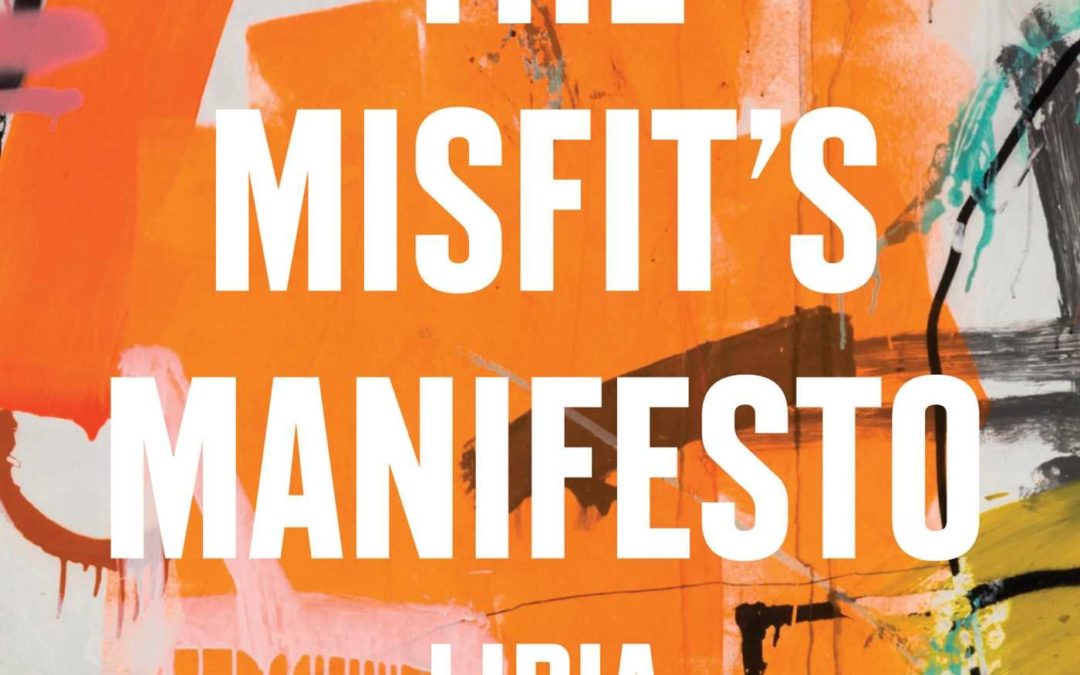The Misfit’s Manifesto
By Lidia Yuknavitch
–Review by Landrum P. Leavell III, Th.D.
The Misfit’s Manifesto is a TED book. I can’t remember where I came across it, but the title grabbed me. I’d never heard of Lidia, knew nothing of her story, and hadn’t watched her TED Talk, “The Beauty of Being a Misfit,” which has had over two million views. Who hasn’t felt like a misfit before? To be crystal clear, this is not a faith-based book or even a faith-referent book. It is real. It is raw. Parts of it are at least R-rated. (I’ve always thought that one way to assess your personal distance between the spiritual penthouse and the outhouse is how long it’s been since you heard an F-bomb in conversation with someone.)
Yuknavitch has written national bestselling novels, one winner of the 2016 Oregon Book Award for Fiction. I intend to read her memoir, The Chronology of Water, which was a finalist for a PEN Center USA award for creative nonfiction and other awards. Today, she is a proud misfit, but it took years to accept and appreciate that status. Her resume is an almost unbelievable testimony to survival, tenacity, indescribable heartbreak, loss, and failure. What would you think in reading her resume? Flunked out of college twice, screwed up a college scholarship in swimming, two epic divorces, lost a daughter at birth, rehab for drug use, two stints in jail, homelessness—yet she couldn’t shake the dream of being a writer.
Her book has been described as her love letter to all those who can’t ever seem to find the “right” path. And she’s not trying to help you get over the misfit hump. It’s not something to be overcome but something to embrace. What does it look like for a misfit to pursue goals unafraid, teaching them how to stand up and ask for the things they want most?
Here’s a taste of Lidia’s words to and about misfits:
“In differing degrees, maybe all of us are losing control of our desires and behaviors a little at a time… The gap between the outcasted, traditional back-alley junkies and weave-walking alcoholic and the rest of society is rapidly closing.”
“It is important to understand how damaged people don’t always know how to say yes, or to choose the big thing, even when it is right in front of them. It’s a shame we carry. The shame of wanting something good…of feeling something good.”
“Not all dreams come from looking up. If you’re a messed-up, malcontent, miserable misfit, and you are still alive, dreams can sometimes appear out of nowhere—Sometimes there’s a dream underneath the dream, or to the side of it, or cutting right through it.”
Suffering is not always beautiful. “I don’t ever want to romanticize the story of suffering, because then you’re just playing into making it a good story or a sellable story for a culture that wants to be entertained by your suffering.”
“I feel kindred with fellow sufferers, not because they suffer, and not because of some absurd vortex of victimhood camaraderie, and not because sufferers are in a state of grace, but because they go on, they endure.”
“Most misfits struggle against the story that’s expected of them. Misfits chafe at the stories placed in front of them or on top of them because nothing about our experiences in life matches up with the traditional or mainstream story line.”
“Our hope happens between ordinary people inventing their own ways of doing things. It’s a lateral definition of hope, one emerging from the edges of things, where you just need to find each other, and you need to stand up and not leave each other.”
“Misfits are remarkably good at invention, reinvention. Innovation in the face of what other people might see as failure. We are resilient; we don’t just survive, we invent how to thrive. Misfits know how to help others…”
“Misfits know how to resist the homogenizing narratives of culture since we live at the edges. We help culture find new shapes. We hold the center from the edges. We guard the perimeter.”
“Beauty doesn’t always come from mirroring the universal. It can also come from the weird on its way to becoming original and transformational.”
She includes a lot of the work of students she has had in her writing classes. I was profoundly impacted by the depth of soul she expressed as well as the raw candor of her story. Having read no reference to faith, I pray for her and her family, that the common, sustaining grace she has lived through to this point would point her to Christ. This book is worth reading or at least listen to her story on her TED Talk.
You’re welcome.

